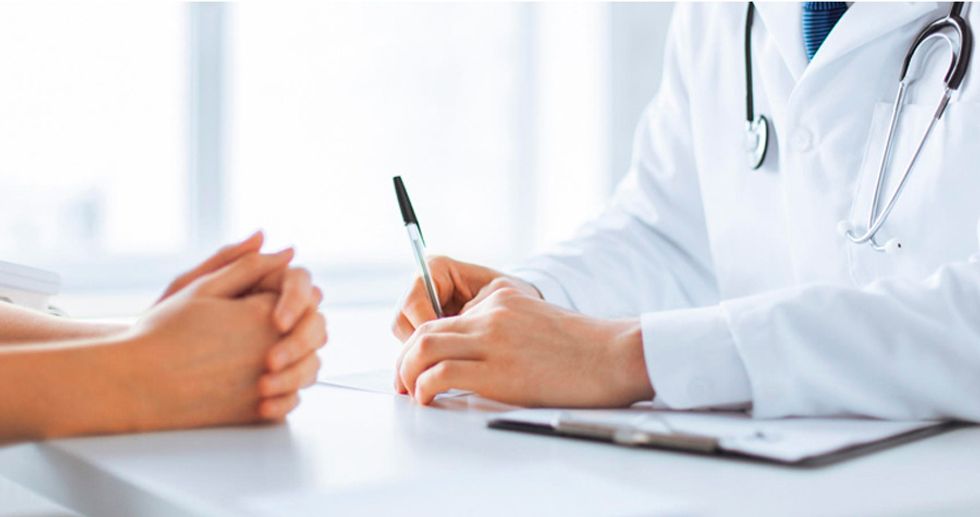The nation's GPs are under more pressure than ever before, with surgery waiting times sitting at around 19 days for a routine appointment. GPs themselves are working 12 hour days, with the Chairwoman of the Royal College of GPs, Professor Helen Stokes-Lampard, filming a video diary of her day.
Her morning alone consisted of 16 face-to-face appointments and eight phone consultations, suggesting that there is very little time for GPs to take a moment for themselves to care for their own wellbeing and collect their thoughts.
The BJGP (British Journal of General Practice) also reported in 2019 that the health of our GPs is being affected by this immense pressure and long working hours. Out of 232 practising GPs they surveyed 93.8% were classed as "likely to be suffering from a minor psychiatric disorder, 94.7% as suffering from mild (22.0%) or severe (72.7%) exhaustion, and 86.8% as having mild (37.9%) or severe (48.9%) disengagement."
Poor wellbeing can lead to poor decision making and affect patient safety, resulting in more near misses and adverse effects.
An NHS staff survey earlier in 2019 also reported that 40% of NHS staff feel unwell due to work-related stress and therefore something needs to be done. While there is very little surgeries are able to do about underfunding, there are some things we can change at an individual level to improve the working environment and in turn the outcome for both staff and patients.
Access free services and support
The NHS GP Health Service is an exceptional, free resource for GPs who need support with their mental health. As a GP, you can reach out to the service to discuss everything from depression and stress to addiction problems and find a solution to improve your working life. To speak to someone call 0300 0303 300 or email gp.health@nhs.net.
Consider implementing longer consultation times
GP indemnity insurance provider, MDS (Medical Defense Society), noted that action is needed to help GPs as more and more leave the profession due to stress and pressure to see more patients each day.
MDS CEO Rohan Simon noted said "....we're acutely aware that some members of our profession feel under pressure. We're keen to make sure that GPs get help in these instances and are able to access the correct support if they do make an error." The company's support comes after a standard 15-minute consultation appointment was suggested by Professor Helen Stokes-Lampard. As a practice, you could try to adopt this timing to put less pressure on GPs.
Plan a break
It can be tempting to forgo a break to see more patients but it's important you have a moment to rest too. A lunch break is important, not only does it allow you to refuel for the afternoon but you should also see it as an opportunity to grab five minutes outside.
Air quality in your workspace can also give your wellbeing a boost, the Remark Group conducted research on air quality and wellbeing at work and discovered that 80% of workers believe that poor indoor air quality affects their productivity. So as well as getting outside for five minutes to breathe in some fresh air, try to open windows when you can too, in a bid to boost productivity and improve the quality of the working environment.
Make time for the things that matter
It's easy to get wrapped up in your work so it's important you make time once or twice a week for the things that matter to you. Whether that be finishing a little earlier to have dinner with your family or meeting a friend at the gym, your job is important but so is your wellbeing. Strive to make time for the things you need to improve your mood and you'll find that each day you have something to look forward to and plan for.
Speak to friends and family throughout the day
Of course, you can't have your phone buzzing throughout a consultation but perhaps a quick text to your partner or a WhatsApp voice message to your son or daughter can help you focus on something other than work in between appointments and break up the day with something pleasant.
Eat well while at work
You could find yourself snacking on unhealthy biscuits or crisps between appointments, instead plan ahead and take some healthier options in such as fruit or chopped raw vegetables. It's also important you don't rely solely on coffee, try to drink as much water as possible. Plus, living a healthy lifestyle yourself means you can promote it to your patients who need it.
As well as implementing these changes yourself as an individual, encourage other members of the surgery to do the same. As GPs, these small changes may not seem like much but they can make a huge difference to your wellbeing day to day and ultimately how well you care for your patients.











